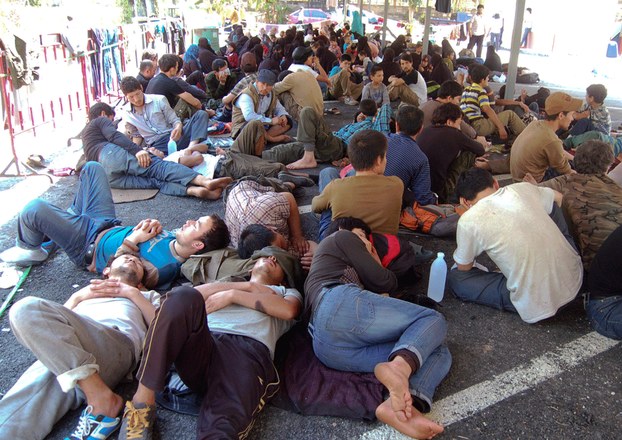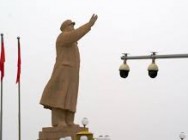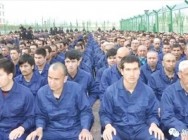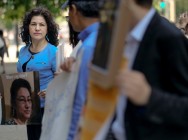Last Minute

- Conflict and Alliance: The US and China: A Centennial Dance: A Century of Relationship from 1900 to 2024
- CHINA RELATIONSEAST TURKESTAN PROBLEM AND TURKEY
- FRONTLINE China Undercover
- Elimination of “Uyghur Counter-Revolutionary Officials” in Academic Fields—Exact Quotes Translated from a Mandarin Audio File
- In Push for Trade Deal, Trump Administration Shelves Sanctions Over China’s Crackdown on Uighurs
- Dalai Lama’s 60th Anniversary Symposium: İlshat Hassan speech in English and Chinese
- Uyghur Detainees from Xinjiang ‘Placed in Nearly Every Prison’ in Shandong Province
- Shahrezad Ghayrat, Unrepresented Women
- Uighur Americans Speak Against China’s Internment Camps. Their Relatives Disappear.
- Rozinisa: The true story of the Uyghur girls in the prison

-

Conflict and Alliance: The US and China: A Centennial Dance: A Century of Relationship from 1900 to 2024
-

CHINA RELATIONSEAST TURKESTAN PROBLEM AND TURKEY
-

FRONTLINE China Undercover
-

Elimination of “Uyghur Counter-Revolutionary Officials” in Academic Fields—Exact Quotes Translated from a Mandarin Audio File
-

In Push for Trade Deal, Trump Administration Shelves Sanctions Over China’s Crackdown on Uighurs
-

Dalai Lama’s 60th Anniversary Symposium: İlshat Hassan speech in English and Chinese
Uyghur Refugees Go on Hunger Strike in Thai Detention Center
More than 100 Uyghur refugees held in a southern Thailand prison who are awaiting their fate after entering the country illegally from China 10 months ago have started a hunger strike, one of the detainees said.
About 140 Uyghurs, Muslims who fled persecution in northwestern China’s restive Xinjiang region, began the hunger strike on Wednesday at a facility in Hat Yai near the Thai border with Malaysia because of worsening conditions and poor food quality, resulting in illness and one death, the detainee told RFA’s Uyghur Service.
“We don’t know whether our protest will have an effect or not on our current conditions,” said the man who requested anonymity for personal security reasons. “However, we decided that we will continue our hunger strike until the Thai authorities give us a positive response. We have no other choice.”
He said that conditions in the Hat Yai facility had grown worse since last month when a three-year-old boy who had contracted tuberculosis at the center died at a local hospital.
Furthermore, the detainees do not have beds or restrooms at the government-run center, he said.
“There are a lot of people who have become sick with various diseases,” he said. “Two days ago, an elderly woman lost consciousness in the section of the prison that houses female inmates, but as I heard, she has still not recovered to her normal condition.”
The detainee, who has been held at the center since last March, also said the food quality there had grown worse, with prison authorities giving them cooked rice without any meat, vegetables or oil twice a day.
“We refuse to eat and to drink anything,” he said about those participating in the hunger strike.
Turkish citizens?
The detainees in the Hat Yai facility are among the roughly 300 Uyghur refugees who fled to Thailand 10 months ago, some of whom maintain they are Turkish citizens in an apparent effort to win support from the government of Turkey.
Thai authorities and international media, however, say they are Uyghur Muslims from Xinjiang where the minority group complains of ethnic discrimination by Chinese authorities.
The detainee said a prison officer at Hat Yai told them: “If all of you really are Turkish citizens and the Turkish government sends us an official letter to testify you are Turkish citizens, we will release you and let you all go to Turkey as soon as possible.”
The detainees, considered illegal immigrants by Thai authorities, have been held in several facilities in Thailand since they were discovered during a raid 10 months ago on a suspected people-smuggling camp in a rubber plantation in southern Thailand’s Songkhla province.
Nearly 170 woman and children were placed in a government-run shelter in Songkhla, while the men were held in immigration detention centers in various locations until their nationalities could be verified, according to reports.
More than 100 escaped in early November, although about 20 were recaptured.
‘Peaceful, ordinary people’
Some of the Thai offices of international human rights organizations and charities have provided humanitarian help to the detainees, while Turkey is trying to have them relocated to its capital Ankara.
But the man at the Hat Yai facility said the detainees could not reveal their true identities until they arrived in a third country.
“We, all of us, fear that the Thai authorities will deport us to China,” he said. “We will go to anywhere in the world and any country, except for China, if they accept us.
“We are peaceful and ordinary people in our home country, but the authorities did not allow us to live and follow our culture and religious beliefs.”
He said that he was once detained by police in China for 15 days because he did not have his identification card with him, and jailed two other times for allowing his wife to cover her head with a scarf and his children to attend Friday prayers.
“We have no any possibilities to live based on our customs and lifestyles, so we chose to flee our homeland and dream to live in a free land as free people,” he said.
In the detention center, he said the attitudes of Thai authorities and police towards the detainees had changed, so that the detainees were no longer allowed to use their cell phones to contact others.
“They strictly control us so we don’t reveal any news to the outside world,” he said, adding that when he speaks to people on his phone, several friends watch for the police, who have confiscated the detainees’ money and cell phones. He did not say how he managed to keep his mobile phone.
Upsurge in violence
The Xinjiang region, which is home to millions of Turkic-speaking Uyghurs, has seen an upsurge in violence that has left hundreds dead since 2012, and which China has blamed on terrorists and Islamist insurgents seeking to establish an independent state.
Uyghur exiles and rights groups, however, have criticized Chinese authorities’ heavy-handed rule in Xinjiang, including police raids on Uyghur households, restrictions on Islamic practices, and curbs on the culture and language of the Uyghur people, and forcing many to flee overseas.
They also have been critical of Chinese authorities who associate Uyghurs with international terrorist groups such as the Islamic State of Iraq and Syria (ISIS).
“Since last year, hundreds and thousands of Uyghur refugees have fled from China to Southeast Asian countries, Dolkun Isa, chairman of the executive committee of the World Uyghur Congress based in Munich, Germany,” told RFA.
“Why didn’t the Chinese detain them [the Uyghurs who fled to Thailand] when they crossed the Chinese border with their family members, including woman and small children?” he asked. “Why let the hundreds of Uyghurs who went to the border in southern China from the remote part of northwest China pass?
“Did they really did not know about these events or did they let them go?” he asked.
Alim Seytoff, chairman of Uyghur American Association based in Washington, said that since the Sept. 11, 2001, terrorist attacks, Chinese authorities have repeatedly tried to repress the Uyghurs under the pretense of the Global War on Terrorism.
“[Now] after more than a dozen years, when the Middle East is involved again in the war [on terrorism] and the ISIS crisis, the Chinese government has attempted again to sacrifice the Uyghurs as a part of international terrorism.”
Rebiya Kadeer, chairperson of the World Uyghur Congress in Washington, told RFA earlier this month just after Chinese police shot dead six attackers who tried to set off an explosive device in Xinjiang, that thousands of Uyghurs were fleeing the region because they had no other choice.
“We’re also aware that the Chinese authorities try to spread propaganda that there will be some connections between some Uyghur immigrants and ISIS without any proof,” she said.
Reported by Eset Sulaiman for RFA’s Uyghur Service. Translated by Eset Sulaiman. Written in English by Roseanne Gerin.
http://www.rfa.org/english/news/uyghur/refugee-hunger-strike-01222015152248.html
RELATED NEWS












